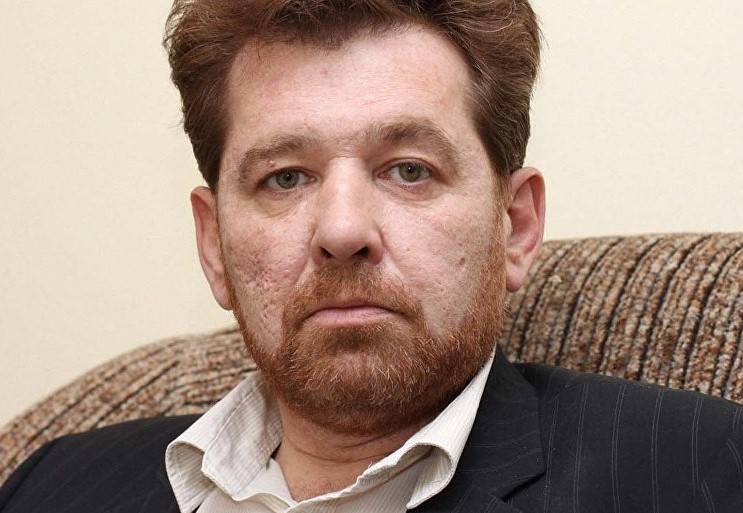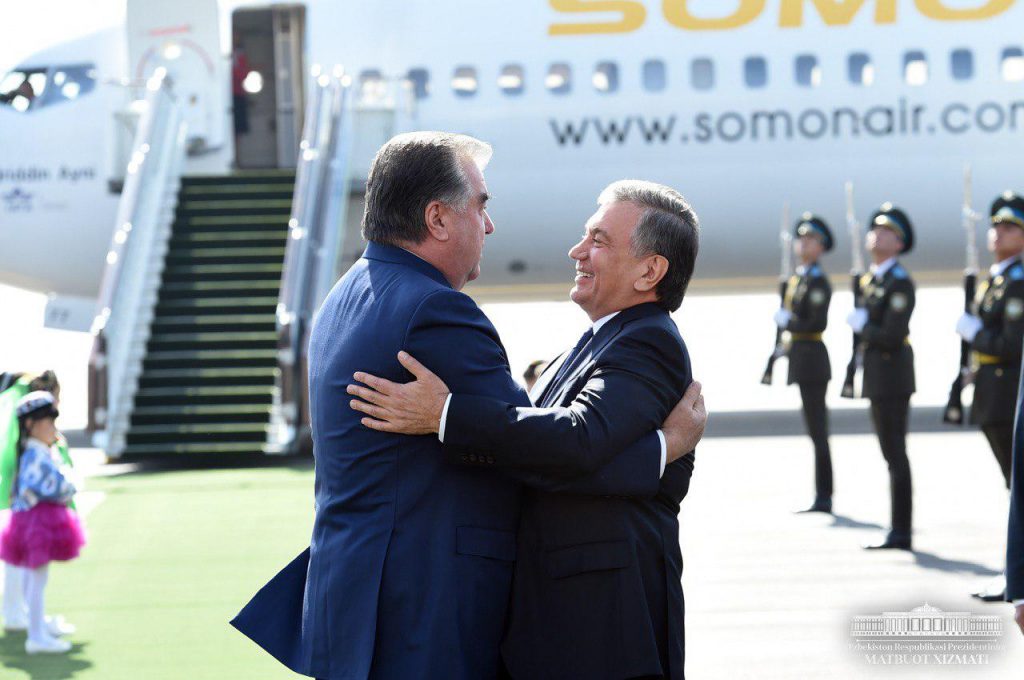“Currently the country is implementing the economic reform. The economic reform needs a strong resource support. The country has no own funds to implement this reform. It needs to attract Russian, Chinese, western and any other capital,” Andrei Grozin, an expert on Central Asia, said.
РусскийCABAR.asia: How would you evaluate the foreign policy pursued by the Uzbek president? How reasonable is it to call his steps in this sphere a “breakthrough”?

Actually, it is reasonable to call as such. This evaluation is to some extent emotional, but in fact the foreign policy of Uzbekistan has gone through profound changes in the last two years. If we compare it to the late period of Karimov, we will see that the current Tashkent policy is more active, aggressive to some extent, focused on openness accepted in the Uzbek traditions. If we compare the current situation with what was in the period of previous leadership, we’ll see obvious and serious, milestone changes in the foreign policy trend of Uzbekistan. All documents and speeches of Shavkat Mirziyoyev emphasise the focus on the normalisation of relations with closest neighbours, i.e. Tashkent gives priority to and is interested more in neighbours in terms of foreign political partnership.
If we compare it to the period of 2013-2014, we’ll see that all those problems that were between Tashkent and its closest neighbours, mainly Dushanbe and Bishkek, have changed for the better now. As a matter of fact, no one could even expect that the Uzbek-Tajik relations would change in the short term as they have changed now.
After the recent visit of Mirziyoyev to Dushanbe, the parties have changed the quality of their relations. The relations with Kyrgyzstan improved earlier. If you remember five years ago border incidents used to occur every month, even with the use of weapons. The problems were due to sharp decline in commodity turnover, commodity flows and supplies, border closure. Uzbekistan cut off gas to Tajikistan from time to time, blocked road transportation, electric supplies were suspended in the region. The suspension of the unified Central Asian energy grid was mostly caused by the position of Uzbekistan. Now we see the reverse situation – Mirziyoyev has repeatedly spoken about the need to recover the unified power circuit. This is one of the indicators of profound changes in various spheres. For example, two years ago it would be impossible to imagine the joint counter-terrorism exercises of Tajik and Uzbek security forces. Now it is an established fact.
In my opinion, in terms of relations with Bishkek, there’s a greater extent of mutual trust, ease of tensions, which can even lead in the mid-term to real steps towards solving the enclave and exclave issues, which seemed to have absolutely no solutions until recent times. This is also due to the constructive stand of the new Uzbek leadership. For more details read: A “historical visit” of Mirziyoyev to Dushanbe In fact, no sharp changes have occurred either in relations with closest neighbours, or in relations with the global centres of power. During Karimov, foreign policy declared normal relations with neighbours as one of priorities. It focused on equal and mutually acceptable partnership with the global centres of power, which is called a Kazakstan strategy of multi-vector foreign policy. However, it’s only now that all these declarations have started to be implemented, while they remained only declarations in the past. if(“undefined”==typeof window.datawrapper)window.datawrapper={};window.datawrapper[“SaoEe”]={},window.datawrapper[“SaoEe”].embedDeltas={“100″:532,”200″:471,”300″:427,”400″:427,”500″:400,”700″:400,”800″:400,”900″:400,”1000”:400},window.datawrapper[“SaoEe”].iframe=document.getElementById(“datawrapper-chart-SaoEe”),window.datawrapper[“SaoEe”].iframe.style.height=window.datawrapper[“SaoEe”].embedDeltas[Math.min(1e3,Math.max(100*Math.floor(window.datawrapper[“SaoEe”].iframe.offsetWidth/100),100))]+”px”,window.addEventListener(“message”,function(a){if(“undefined”!=typeof a.data[“datawrapper-height”])for(var b in a.data[“datawrapper-height”])if(“SaoEe”==b)window.datawrapper[“SaoEe”].iframe.style.height=a.data[“datawrapper-height”][b]+”px”}); Are there any signs that the key aspects of the Uzbek foreign policy concept will be revised? I have been actively interacting with different experts and high-ranking officials of Uzbekistan in the last month. A range of joint bilateral large scientific forums has been held in Moscow both by the Russian Institute for Strategic Studies and by academic institutions of the Russian Academy of Sciences. And all experts said that if the Uzbek foreign policy concept was to be changed after all these years and if it needed some amendments, these changes would be very specific, accurate, soft, but not pivotal. In other words, some editorial changes might be made. But the essence of the concept is unlikely to be changed. In recent years, Islam Karimov kept Uzbekistan away from Russia, China, USA and Western countries equally. Do you think Shavkat Mirziyoyev will pursue this policy? To what extent will he be able to maintain the Karimov’s approach and will he ever want to? I think he will maintain. We can see the country is interested in expanding partnership in all aspects, without putting all eggs in one basket, in the general concept and foreign policy, in documents related to the concept, in practical steps taken by Mirziyoyev as president in the last two years. Now, following the visit of Vladimir Putin to Tashkent, some “hot heads” started speaking about the pro-Russian orientation of Uzbekistan. I think it is too soon and unreasonable. Uzbekistan during the visits of Mirziyoyev to Washington, D.C., Delhi, Paris, not to speak of the last year’s visit to Beijing, has shown interest in expanding economic and political partnership with all global centres of power. The objective reality is that Uzbekistan defends its national interests by trying to get the most out of relations with all other countries.!function(e,t,n,s){var i=”InfogramEmbeds”,o=e.getElementsByTagName(t)[0],d=/^http:/.test(e.location)?”http:”:”https:”;if(/^\/{2}/.test(s)&&(s=d+s),window[i]&&window[i].initialized)window[i].process&&window[i].process();else if(!e.getElementById(n)){var a=e.createElement(t);a.async=1,a.id=n,a.src=s,o.parentNode.insertBefore(a,o)}}(document,”script”,”infogram-async”,”https://e.infogram.com/js/dist/embed-loader-min.js”);
How would you estimate the relations between Uzbekistan and Kazakstan? Are they rivals or partners in Central Asia?
Yes, there have been many speculations on this theme. It’s more like a rivalry. It didn’t appear yesterday, it used to be in the late Soviet period. The rivalry between Tashkent and then Alma-Ata (official name in the Soviet times – editor’s note) existed back in the 1970s. These used to be the two largest economies in the region, largest elite groups and largest lobbying potential. Thus, after the independence, these countries remained rivals to some extent. Many things depended on the personalities of their leaders. Nursultan Nazarbayev always held himself out as an “Eurasian”, nearly the Nobel Peace Prize laureate. Islam Karimov obviously had different opinion on these issues: on the situation in the region, on leadership in the region, etc. Their relations were uneven, sometimes objective or subjective in nature. They are still uneven just because the change of leadership does not change objective concerns of elites, national economies and businesses. Of course, there is certain rivalry but it’s not antagonistic in nature. Now we see that the relations between Tashkent and Astana are being built in a positive way. The first visit of president Shavkat Mirziyoyev was not to Moscow, Beijing or Washington, D.C., but to Astana. Thus, he demonstrated that the relations between the two largest states in the region must be built in a positive way.This article was prepared as part of the Giving Voice, Driving Change – from the Borderland to the Steppes Project implemented with the financial support of the Foreign Ministry of Norway.

